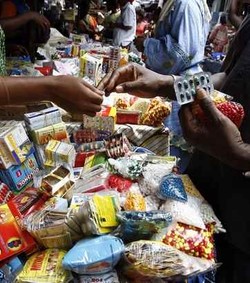UNODC draws fire over fraudulent medicines plans
Phil Taylor, 14-Dec-2014
 The United Nations Office on Drugs and Crime (UNODC) has been criticised for drafting model legislation that links the fight against falsified medicines with intellectual property (IP) issues.
The United Nations Office on Drugs and Crime (UNODC) has been criticised for drafting model legislation that links the fight against falsified medicines with intellectual property (IP) issues.
A draft version of the 64-page model law, published in mid-November and due to be finalised last week, has been accused by some parties of conflating the safety and quality of medicines with an IP enforcement agenda.
That has led to significant controversy in the past, particularly for the World Health Organization (WHO) which has been forced to fundamentally rework its activities in this area in the face of criticism from some member states - notably India and Brazil - which alleged it was pandering to an agenda set by the pharmaceutical industry.
In 2012, the WHO adopted a resolution to set up a member state 'mechanism' to tackle the trade in counterfeit medicines from a public health perspective and without any consideration of IP issues, after agreeing that the latter lay outside the scope of its public health remit. The controversy came to a head in 2008 after shipments of Indian generics were seized at EU borders en route to markets in Latin America on suspicion of patent infringement.
Meanwhile, under World Trade Organisation (WTO) definitions, counterfeits only refer to trademark rather than patent violations and do not take into account quality considerations.
Stefano Bonino, a research associate in the School of Applied Social Sciences at Durham University in the UK, said earlier this year that an earlier draft of the model law was "fatally flawed", creating confusion and setting up a clash between the UNODC and health advocates.
Opposition building
In the latest development, the permanent missions of various emerging economies - including Brazil, India, Russia, China and South Africa - have sent a letter to UNODC questioning whether the organisation has a mandate even to develop such a law and asking it to start a broader consultation with UN member states.
The Indian Pharma Alliance - which represents domestic drugmakers in the country - has expressed concern that the model law does not explicitly exclude IP considerations from the scope of the law, unlike the WHO mechanism. Moreover, as it provides considerable leeway for individualised interpretation when translated into national legislation, it fears some countries could adopt a broad definition of a 'fraudulent' medical product.
Advocacy organisations such as the Third World Network (TWN) are concerned about the involvement of pharma industry-backed groups such as the Pharmaceutical Security Institute (PSI), International Federation of Pharmaceutical Manufacturers and Associations (IFPMA) and Institute of Research Against Counterfeit Medicines (IRACM) in the consultation process.
Their position is backed by Amir Attaran, a professor of law at the University of Ottawa who drew up an earlier draft of the model law that specifically excluded IP issues but was rejected by the UNODC in favour of another draft developed by the Irish Medicines Board.
"Third World Network slams UN, says its fraudulent medicines model law promotes pharma's IP rights. They're correct," Attaran tweeted last week, adding: "the UN's war on drugs team and Sanofi are trying to criminalize medicines that breach pharma IP rights."
For its part, the branded pharma industry has repeatedly denied that it is trying to squash the trade in legitimate generics though its support of and involvement in the UNODC model law initiative, as well as earlier programmes such as the WHO's now-dormant International Medical Products Anti-Counterfeiting Taskforce (IMPACT).
Related articles:

©
SecuringIndustry.com




 The United Nations Office on Drugs and Crime (UNODC) has been criticised for drafting model legislation that links the fight against falsified medicines with intellectual property (IP) issues.
The United Nations Office on Drugs and Crime (UNODC) has been criticised for drafting model legislation that links the fight against falsified medicines with intellectual property (IP) issues.